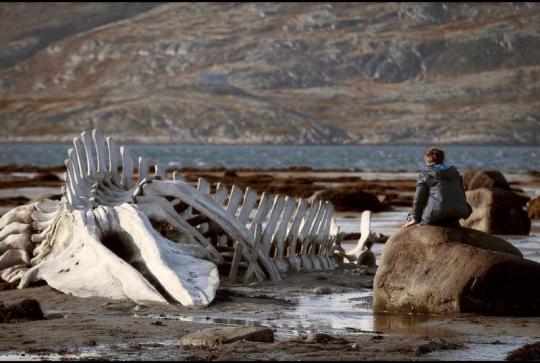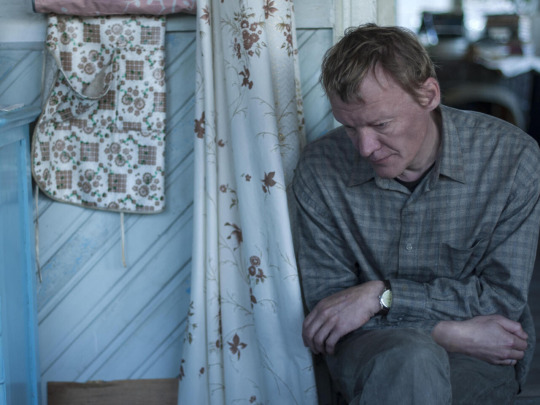#zvyagintsev
Explore tagged Tumblr posts
Text










FILMS in 2024: 56 | The Return Возвращение (2003) — dir. Andrey Zvyagintsev
#the return#Возвращение#vozvrashchenie#andrey zvyagintsev#russia#russian cinema#world cinema#wroldcinemaedit#filmgifs#moviegifs#fyeahmovies#userfilm#motionpicturesource#dailyflicks#cinemapix#filmtvtoday#filmedit#userstream#!gifs#films2024
150 notes
·
View notes
Text

#polls#movies#leviathan#leviathan 2014#leviathan movie#2010s movies#andrey zvyagintsev#aleksey serebryakov#elena lyadova#vladimir vdovichenkov#roman madyanov#anna ukolova#requested#have you seen this movie poll
30 notes
·
View notes
Video
youtube
Andrei Zvyagintsev - Izgnanie (The Banishment) / Lorenz Weber - 01:30
Izgnanie (The Banishment) 2007, directed by Andrei Zvyagintsev, is a deeply introspective film that tackles themes of guilt, remorse, and the fragility of human relationships. Visually, it is a masterpiece, with meticulously crafted cinematography that reflects the emotional and physical isolation of the characters.
The long takes and desolate landscapes emphasize the oppressive atmosphere and sense of alienation. The narrative centers on tension and mistrust within a family, exploring how secrets and misunderstandings can lead to devastating consequences.
Zvyagintsev, known for his style reminiscent of Tarkovsky, employs a slow pace that allows for deep immersion into the characters' psychology, which may be challenging for some viewers but fascinating for those who appreciate contemplative cinema.
The performances are restrained and loaded with implicit emotions, especially that of the protagonist, who conveys a blend of desperation and moral ambiguity. The film is a meditation on faith, redemption, and the capacity of people to confront the truth, making it an intense and thought-provoking experience.
The piece 01:30 from “Wintermusik" by Lorenz Weber evokes a deeply introspective and melancholic atmosphere, characteristic of contemporary minimalism. The composition stands out for its subtle use of the piano, weaving a delicate and enveloping sound texture. The chords and harmonic progressions, seemingly simple, manage to convey a sense of calm, yet with an underlying emotional restlessness.
The choice of slow and measured tempos allows the listener to immerse themselves in a state of contemplation, making each note resonate meaningfully. The piece captures an essence of winter solitude, as suggested by the title, while evoking images of serene, snow-covered landscapes.
The use of space between the notes and the piano's resonance adds an ethereal quality that enhances the intimate and personal character of the music.
https://lorenzweber.bandcamp.com/track/01-30

10 notes
·
View notes
Text







Stills from 'Leviathan'(2014) dir Andrey Zvyagintsev. Source:
#that movie wan not for me at all#but the cinematography was sick#leviathan#cinema#independent cinema#russian cinema#Andrey Zvyagintsev#movie stills
11 notes
·
View notes
Text
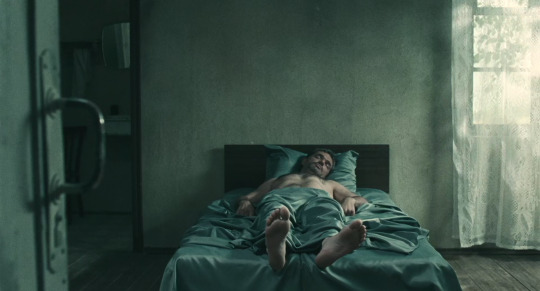
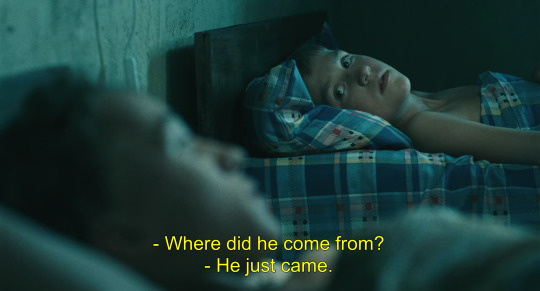
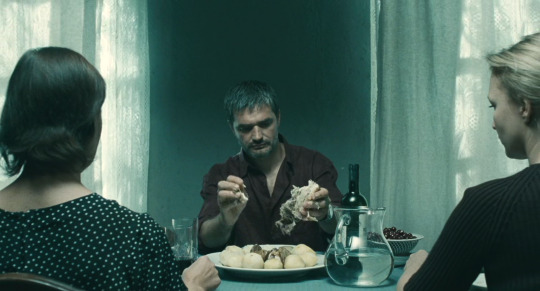
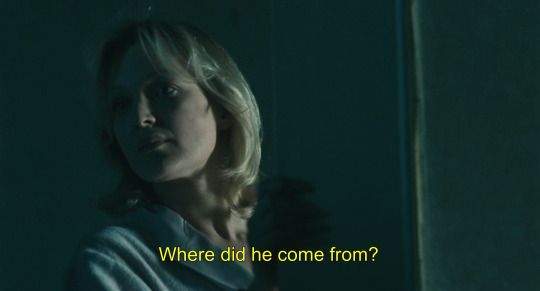

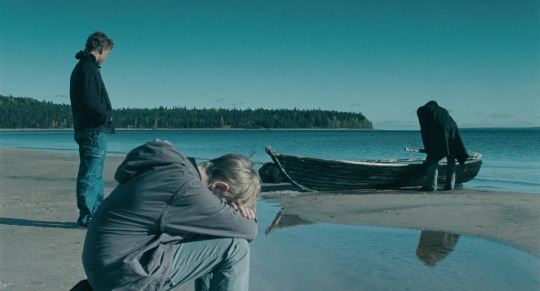
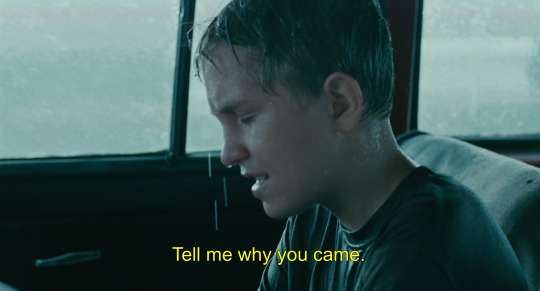
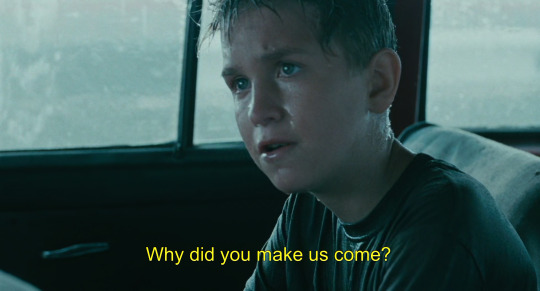
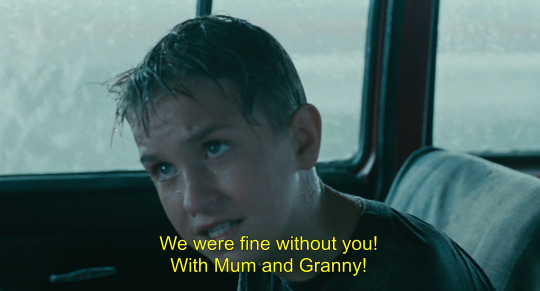
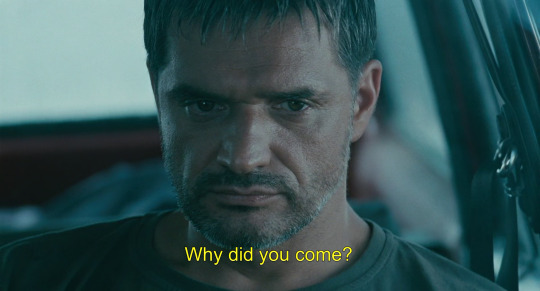

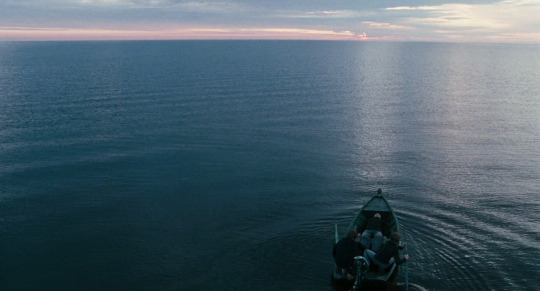
Возвращение, 2003
#drama#Возвращение#the return#vozvrashcheniye#andrey zvyagintsev#vladimir moiseenko#aleksandr novototskiy-vlasov#ivan dobronravov#vladimir garin#konstantin lavronenko#nataliya vdovina#spoilers
13 notes
·
View notes
Text

Nebulae Come Sweet - De Lumière (April 20th, 2023) Country: Belarus Genre: Post-Metal
Lineup: Igor Kovalev - Vocals, Drums, Samples Dmitry Matveev - Vocals, Guitars Sergey Shidlovsky - Vocals, Bass Anastasiya Vashkevich - Cello, Strings
Guest/Session: Andrey Byzovsky, Aleksey Maksimov - Guitars Diana Gvozd - Piano Anastasya Trukhina - Violin Igor Shevtsov, Daniel Egorov - Trumpet Alexander Zvyagintsev - Accordion Ivan Izmalkin - Saxophone Igor Butz - Bass Alexandra Sidorevich - Vocals, Choir Alexey Shipulin - Spoken Voice, Choir
#Telegram#Nebulae Come Sweet#Post Metal#Igor Kovalev#Dmitry Matveev#Sergey Shidlovsky#Anastasiya Vashkevich#Andrey Byzovsky#Aleksey Maksimov#Diana Gvozd#Alexandra Sidorevich#Belarus#Anastasya Trukhina#Igor Shevtsov#Daniel Egorov#Alexander Zvyagintsev#Ivan Izmalkin#Igor Butz#Alexey Shipulin#Russia
2 notes
·
View notes
Text

Andrey Zvyagintsev - The Banishment
8 notes
·
View notes
Text
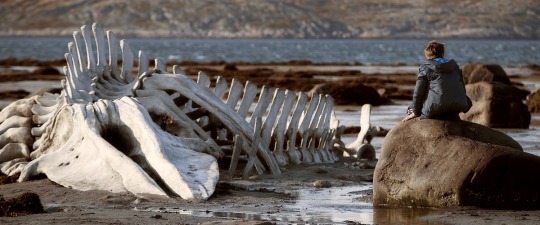
Leviathan (Andrey Zvyagintsev, 2014)
Cast: Aleksey Serebryakov, Elena Lyadova, Vladimir Vdovichenkov, Roman Madyanov, Anna Ukolova, Aleksey Rozin, Sergey Pokodaev. Screenplay: Oleg Negin, Andrey Zvyagintsev. Cinematography: Mikhail Krichman. Production design: Andrey Ponkratov. Film editing: Anna Maas. Music: Andrey Dergachev, Philip Glass.
Leviathan was the official Russian entry in the Oscar foreign film category and there was controversy in Russia over its portrayal of the hard-drinking Russians, the corrupt bureaucracy, and the complicit Russian Orthodox Church. It's a truly astonishing film when you consider all of these things, and that the villain of the film, the grasping, criminal major (played to the creepy depths by Roman Madyanov) presides over his malfeasance under a watchful portrait of Vladimir Putin. At one point in the movie, the protagonist, Kolya (Alexey Serebryakov), and his friends engage in some drunken target practice that involves shooting at pictures of Brezhnev, Gorbachev, and other former communist leaders. One of the group says he has pictures of some more recent targets once those are gone. Cynicism and bitterness prevail throughout the film, and with its dark humor and deep-rooted hopelessness it reminds me of hard-core American film noir. Through it all, though, there's the soiled beauty of the Russian landscape, splendidly filmed by Mikhail Krichman. There are some chilling moments, such as the monotone readings of the court's judgment against Kolya in his suit against the mayor and the even more devastating judgment against Kolya at the film's end. And it's heart-wrenching to watch the destruction of Kolya's home from inside, with furnishings that we have come to know from earlier scenes in the movie still in place, being swept away by the jaw of wrecking machine.
9 notes
·
View notes
Text

Vozvrashchenie (2003), Andrey Zvyagintsev.
4 notes
·
View notes
Text

Happy 60th, Andrey Zvyagintsev.
3 notes
·
View notes
Text

1 note
·
View note
Video
youtube
Andrei Zvyagintsev - Izgnanie (The Banishment) / Lorenz Weber - 01:30
"Izgnanie" (international title: The Banishment) is a 2007 Russian film directed by Andrei Zvyagintsev, recognized for its deep exploration of family dynamics and alienation. Based on the novel The Laughing Matter by William Saroyan, the plot follows Alex, played by Konstantin Lavronenko, who moves his family to the countryside, where secrets emerge that put their bonds to the test. The narrative unfolds at a deliberate pace, allowing immersion into the characters' emotional complexities.
Visually, the film is stunning, with cinematography that evokes comparisons to the work of Andrei Tarkovsky. The meticulously composed shots and the use of natural landscapes reinforce the contemplative and melancholic atmosphere of the story. However, some critics have pointed out that, despite its visual beauty, the film can feel slow and lacks a compelling narrative.
The performances are remarkable, especially Lavronenko’s, who won the Best Actor award at the 2007 Cannes Film Festival for his role. His portrayal of a man caught between duty and desire adds depth to the narrative. Despite mixed reviews, The Banishment remains a significant work in Zvyagintsev’s filmography, offering a visually captivating meditation on morality, guilt, and the fragility of human relationships.
4 notes
·
View notes
Photo
Art Influences Film - Side by Side










#side by side#art influences film#comparison#agustin díaz yanes#diego velázquez#bob fosse#otto dix#lasse hallström#andrew wyeth#paul thomas anderson#leonardo da vinci#bigas luna#francisco de goya#lars von trier#eugène delacroix#robert eggers#sascha schneider#guillermo del toro#andrey zvyagintsev#andrea mantegna#akira kurosawa#vincent van gogh
5K notes
·
View notes
Text














Возвращение, 2003
#drama#Возвращение#vozvrashcheniye#the return#andrey zvyagintsev#vladimir moiseenko#aleksandr novototskiy-vlasov#ivan dobronravov#vladimir garin#konstantin lavronenko
3 notes
·
View notes
